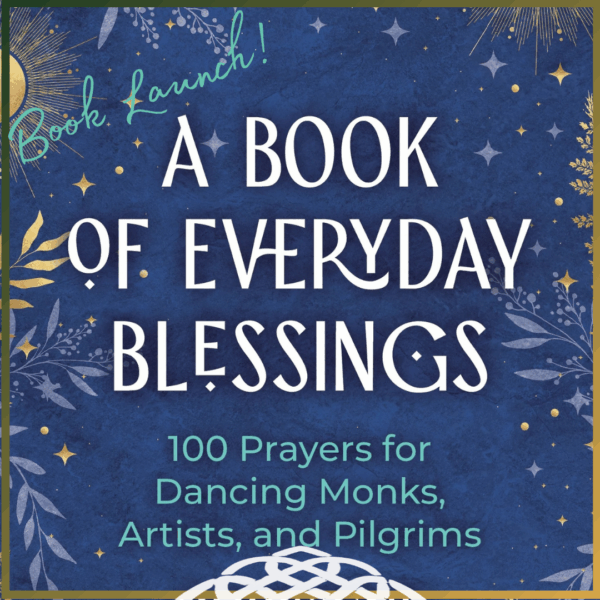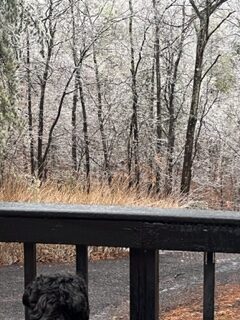“In a dark time, the eye begins to see.” -Theodore Roethke
“Wisdom comes with winter.” -Oscar Wilde
I love the bare branches of winter trees spread across the muted sky. Those aching arms that have been stripped of encumbrance to reveal the bones.
When autumn comes I am dizzy with delight at the release of fluttering jeweled prayer flags settling to the ground to become the compost for next spring’s flowers. There is an excitement I experience at the change of each day’s landscape, a parade of colors, always something new revealed. It can be easy to forget that this is also the heart of dying.
Then winter arrives and brings with it an often profound stillness. Winter immerses me in the aching beauty of death and loss when my heart is stretched to capacity with longing for what I have loved deeply and had wrenched from me.
I have not always had this deep love of winter. Years ago I might have said that spring or summer were my favorite seasons with their flowering and warmth and endless days. It was really my mother’s death five autumns ago that thrust me into a necessary relationship to the tearing away of fall leaves from their foundations. In those days that followed, I would walk for hours among trees, begging for their wisdom in the midst of my devastating pain. And as autumn became winter, and the leaves had all made their pilgrimage to return to the earth, I found strange comfort. No easy offerings, I both celebrated my grief because of the great love it witnessed to, and I wanted to leap out of its suffocating pool that swallowed me for months.
In the monastic journey through the Hours of the day, it is the night that corresponds to the winter season. The darkened sky rimmed with violet and rain invites me into silence, into rest, into releasing my own frantic busyness in an effort to convince myself that this is what makes my life meaningful. We are often afraid of the dark silent time of the day and the year. We have many ways to keep our lives illuminated and full so that we do not have to ponder winter’s harsh and necessary wisdom.
Winter reminds me that I know very little, that Mystery pulses through creation, through my own beating blood. It is the time for me to lay aside any easy answers offered by religious stories and traditions that seek to assure me it will all be okay, so not to trouble myself. It is the season of humility. Some deaths bring relief, the laying down of the commitment that had become draining, the end of a relationship that had become destructive, the shedding of an identity that had become too narrow. That relief is still accompanied by grief’s draining sense of the familiar rushing out like blood pouring from a wound, the long, dark night of unknowing still ahead.
My own multiple journeys through grief have demanded that I take the Midwinter God seriously. That I look her fiercely in the eye until I see the reflection of my own terror and stay with it, breathe through it, begin to enter it with curiosity to see what it has to teach me about living in meaningful ways, to live a life of depth that takes seriously both suffering and joy. I am called to become friends with the thing I hate — the inevitable loss of everything I love. A friendship that plunges me into the precious nature of each single moment.
This Midwinter I am embarking on another layer of my own journey through a memoir-writing class. I have long known the title of my first attempt at gathering memoir material would be “A Midwinter God.” It came to me one black night like a dream, laid in my palm as a gift that would take time to open. I have been opening it through my own story, as well as my exploration of the struggles and wounds of my ancestors. The doubt and despair, the longings that echo within me as genetic inheritance, that I am also called to make meaningful. For whatever reason, part of my call in this life is to enter the winter landscape and dwell there long enough for my eyes to adjust so that I might begin to see with a different kind of vision and become a companion and guide for others.
What is your relationship to this time of Midwinter?
What does the God of Midwinter invite you to consider?
Christine Valters Paintner at Abbey of the Arts:
Transformative Living through Contemplative & Expressive Arts



9 Responses
Thank you for such a beautiful and spiritually resonant post Christine. Your words and images about the Midwinter God speak so helpfully to me. Bless you.
Tess, I love the image of yearning peacefulness and I agree, it is hard to imagine that the half the world is in summertime now.
You are welcome Carolyn and Suz!
Thanks, Christine. Very helpful to me today, though it is early winter in Minnesota!
Thank you Christine for the image of leaves as ‘fluttering jeweled prayer flags’, a descent that happens even here in FLorida, and well past fall into winter.
The ‘retreat of nature’ is more subtle here, but it does exist and serves as an invitation to really pay attention, and notice……
Yes, for me also there’s a kind of yearning but peacefulness in this season. (Strange to think it is not winter everywhere on the globe!)
There is something about the retreat of nature that enables us, too, to retreat.
Thanks for these marvelously thoughtful comments. Margi, I resonate so much with your image of the cycle of barenness to abundance and back again, and what a gift to be able to receive it fully as is.
kigen, I think my intention was to evoke another dimension of God we don’t often address, the wildness of God who is wrapped in dark spaces and dwells with us in grief. Some of the classical myth figures are those great archetypal energies with which we still wrestle.
SS, it gives me such joy to know you are learning to love this dark season and you are resisting the buds to claim more of winter’s wisdom for yourself.
HI Christine, After my prayers this a.m., yours was the first site I visited. I felt the richness of your words, but knew I had to come back to them this evening when I could linger over them.
Mid-winter in the great NW, I think is not as grueling in terms of fighting the cold, the deep snow, the wind, etc. so I feel a bit embarrassed to even use the term mid-winter – however!, mid as it gets here, I find that the winter although I don’t suffer through it, it does make the renewal of spring time resurrection more important than what I expect I would feel without it. I anticipate those resurrections of all life in spring, while still looking forward to a break from the cold (to a warm place) but I also feel some anxiety when I see crocus peeping up in my garden – no, no, I want to warn them – winter is not over, it’s too soon for this portion “of my life” to be over – the days go too quickly as it is, let the cold linger a bit, it will make the springtime sweeter. (Winter and night have taken on new dimensions for me since the Hood Canal Retreat – I think I am just beginning to learn about the two.)
Hi Christine, the “God of Midwinter” might evoke predefined images from classical mythology, where the season is personified by Hades. But I have a sense you are referring more to an unknown Angel of Midwinter, who waits to be illumined.
~kigen
Hi Christine,
I’ve been reading your beautiful blog for some time and want to say a deep and heartfelt thank you for your thoughtful writing and exquisite photos. I am also very interested in the intersection between art and one’s spiritual life and the way nature informs our spiritual practice.
Mid winter has become a rich time for me as well, also through the vehicle of loss and is a time of year I now relish. Not just the exhiliration of the crisp air, but the barrenness of the landscape. The cycle of life through barrenness to abundance and back to barrenness is a journey at first fraught with anxiousness but is now becoming one I treasure. (At least most of the time ;-)
Thank you again for your generous spirit in sharing your insights. margi